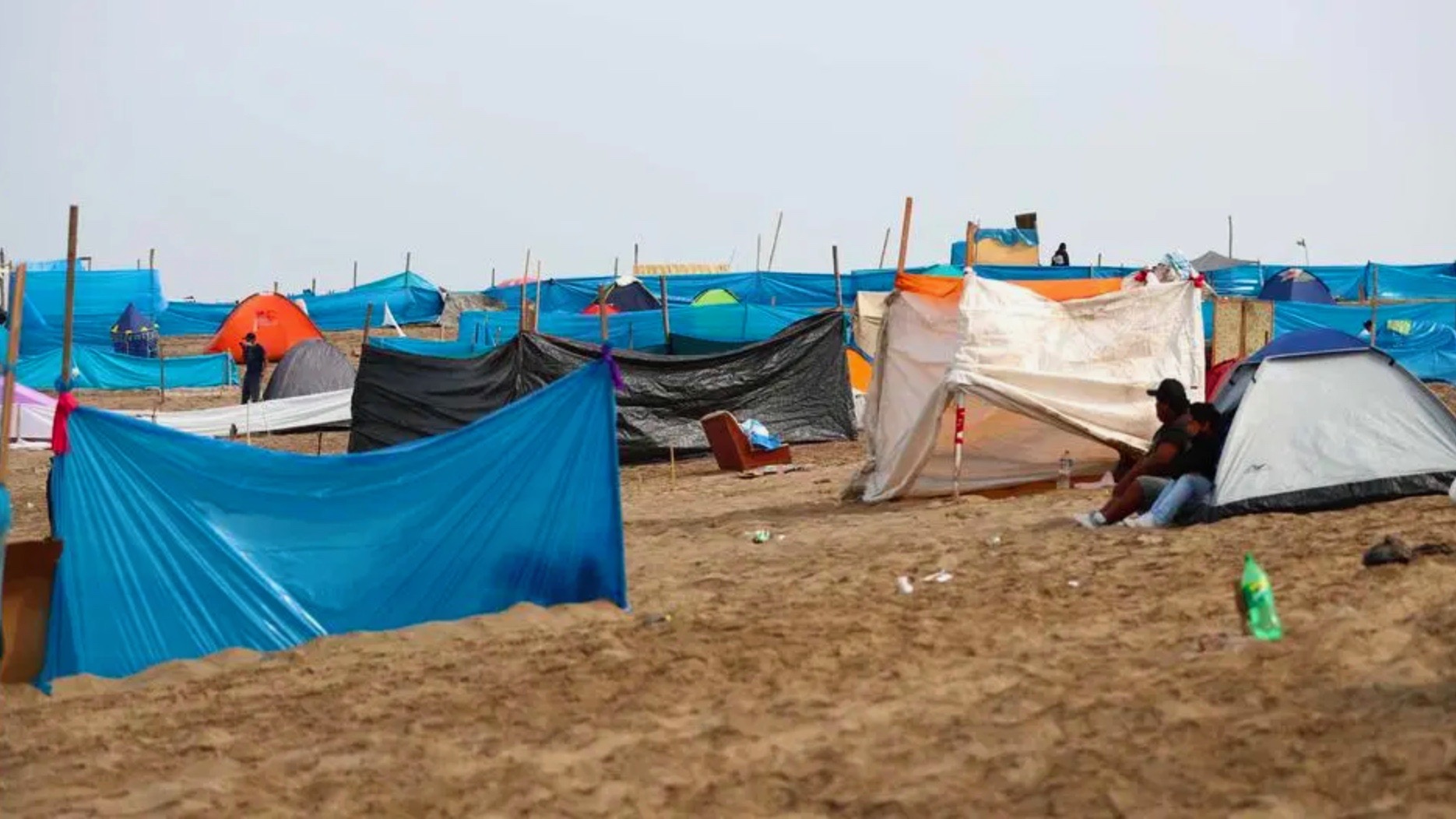70% of Peru’s workforce is employed in the informal sector and depends on daily income to survive. These millions of workers have been hard hit by the COVID-19 pandemic over the last year. As a consequence of the latest surge in coronavirus cases due to the new and more contagious virus variants and the restrictions in place to curb the spread, there has been a sharp spike in the already dangerously high levels of unemployment, poverty and homelessness in Peru.
This weekend, various national and international media outlets reported that over 10,000 Peruvians, who lost their livelihoods and became homeless, have sought refuge in temporary camps set up on abandoned land in the Lomo de Corvina area, in the Villa El Salvador district, situated on the outskirts of the capital Lima. The government and police authorities have demanded that the inhabitants of the camp vacate the site, but the people have stated that they have no other options.
“We are not invaders, we are not traffickers, we are not delinquents, we are not gang members. We are mothers who need help,” Claudia Pauccar, a recycler and an inhabitant of the camp, told AP.
On April 25, the representatives of the Presidency of the Council of Ministers (PCM) held a meeting with the representatives of the cultural and housing ministries, the National Institute of Civil Defense (INDECI) and the lawyer of the settlers. However, it ended without reaching an agreement.
After the meeting, the head of the Secretariat for Social Management and Dialogue of the PCM, Gisselle Huamaní, informed that the government does not plan to relocate the inhabitants. “At this time we are not in a position to relocate them, they will have to settle in their homes of origin, where they have come from,” said Huamaní. Additionally, he warned that if the occupation continues, the authorities will adopt legal measures to defend the property.
According to the local media, the people began arriving and settling in Villa El Salvador on April 11. They are living in tents and shack houses, in precarious conditions without any basic services such as water, electricity and drainage, amid the health emergency.
Javier Diaz-Albertini, professor and researcher at the University of Lima, explained that the country “has never had a popular housing policy,” which continues to contribute to the problem of homelessness.
Crisis of inequality
Decades of neoliberal policies and chronic underfunding of the public sectors have deepened social inequality in Peru. Last year, in November 2020, the country saw widespread protests demanding systemic change. One of the key demands was for a new inclusive constitution to replace the current one which was drafted during the dictatorship of Alberto Fujimori and promotes a neoliberal economic model.
The presidential candidate, Pedro Castillo of the left-wing Free Peru political party, who is leading the opinion polls on voting intention, has expressed himself in the favor of rewriting the country’s constitution. He has proposed an anti-neoliberal economic model to address the crisis facing Peru. He has proposed nationalizing natural resources & strategic industries such as mining, oil, hydropower, gas and communications to equitably divide the country’s resources.
Meanwhile, his opponent and the daughter of former dictator, Keiko Fujimori of the far-right Popular Force party, advocates preserving the current constitution and continuing the economic model.
Last week, on April 23, Verónika Mendoza, who also contested for the presidency from the progressive Together for Peru party, announced her support for Castillo in the second round of presidential elections.
In a statement, released on her political movement New Peru’s social media accounts, the party celebrated Castillo’s victory in the first round held on April 13, and called for popular support against fujimorismo. “We salute the triumph of Pedro Castillo in the first round of elections as he expresses a will for change and can make a democratic and popular solution to the crisis viable, closing the way to the authoritarian and corrupt option that Fujimori represents,” read the statement.
According to the latest opinion poll conducted by the Institute of Peruvian Studies (IEP) telephonically for La Republica newspaper, released on April 25, Castillo is leading in almost all areas of the country and among all social groups with 41.5% of the votes, while Fujimori follows him with 21.5% of the votes.
Encuesta IEP: Pedro Castillo le saca casi el doble de ventaja a Keiko Fujimori
Dos quintas partes del Perú respaldarían al líder izquierdista para que llegue a la presidencia y solo una quinta parte a la heredera del fujimorismo.
Más información en ► https://t.co/m9UFAGBpuL pic.twitter.com/yF4ZdzfCDP
— Diario La República (@larepublica_pe) April 25, 2021





